2016/08/22
サマンサのBCP英語講座
こんにちは!危機管理エキスパートのサマンサです。今回のテーマは、「噴火」です。以前にも一度取り上げたことがありますね。私が危機管理の勉強を始める大きなきっかけとなった1つが雲仙普賢岳の噴火です。火山大国である日本では、噴火対策が重要であることを再認識させられました。
編集部注:「リスク対策.com」本誌2014年11月25日号(Vol.46)掲載の連載を、Web記事として再掲したものです。(2016年8月22日)
Keywords
火山や噴火に関する単語は、Lesson.4で噴火をテーしたとマにきにも勉強しました。そこで今回は、噴火の記事やニュースの際に使われる日常単語や表現を中心に選びました。
1.Overnight
We stayed overnight at the evacuation center after eruption yesterday.
昨日の噴火の後、私たちは避難所で一夜を過ごした。
overnightは、副詞としても形容詞としても使えます。以下は形容詞としての例文。e.g.)Overnight coach arrives in Tokyo at 5 in the morning.深夜バスは朝5時に東京に着いた。
2.The island of 固有名詞
Big earthquakes after eruption struck the island of Hawaii.
噴火後に大きな地震が何度もハワイ島を襲った。
「島」を英語にするときは、基本的には「the island of 名前」です。例えば、イタリアのカプリ島のことは、The island of Capri と言います。世界の思いつく島の名前を英語で調べて次の空欄に書いてみましょう。
The island of____, The island of__________
3.Risk+~ing sth
She couldn’t risk taking a photograph when the volcano erupted.
彼女は火山が噴火した時、危険を冒て写真を撮るとができなかっしこた。
動詞としてriskを使う時、その後は、~ing。to doは使いません。
4.All the time
Prediction of volcanic activity is improving all the time.
火山予測は日々、進歩している。
all the timeは、「絶えず、継続的に」の意味。同義語はcontinuously。似たような表現でeverytime「∼する度に」とは、意味が違うので注意。
5.Rain
There was heavy rain in Tokai area, so rescue teams stopped search for survivors temporarily.
東海地方の豪雨のため、救助隊は生存者の救助を一時的に止めた。
「雨が降る」は、It rainsのように動詞を活用した表現だけではありません。thereを使うことでrainを名詞としても表現できます。
6.Rational
Despite being an experienced climber, he was far too upset to make a rational decision when the eruption happened.
長年の登山経験者にも関わず、噴火が発生した時、彼は混乱して冷静な判断が出できなかった。
rationalは「合理的な」という意味から転じて「冷静な」という意味になります。
e.g.) Taro Abe, the riskmanager of AAA co.Ltd couldn't have make a rational judgment in emergency situations.
AAA会社のリスクマネージャーである安部太郎は、緊急事態において、冷静な判断を下すことができなかった。
7.Search
Rescue teams in Japan are still search for survivors at the mountain shrine at the ash-covered summit of Mt. Ontake.
日本の救助隊は、火山灰で覆われた御嶽山の頂上の神社の周辺で生存者を探している。
search(他動詞)とsearch for(自動詞)の使い方のちがいに注意。Searchはsearch+探す場所/人、search for探すモノ/人そのものです。従って、search(他動詞)の場合は、以下のような例文で使います。
e.g.) The security guard searched him, but didn't find anything.
警備員は彼の持ち物チェックをしたが、何も出てこなかった。
8.Quite+a lot (of)
Unfortunately, there were quite a lot climbers on the mountain when the volcano erupted.
不幸にも、噴火が発生した際には多くの登山者がいた。
「かなり多くの」と英語で言うとき、quite a lot(of)quite many/muchのようにmanyやmuchは使いません。
e.g.)Quite a lot of time has been passed after the eruption.
噴火から、かなり長時間が過ぎた。
9.Smash
Large volcanic rocks and projectiles smashed the roofs of emergency site on the mountain.
大きな噴石が山の避難所の屋根を打ち破った。
Smashは、「∼を粉々に砕く」という意味。同義語のbreakと比較して、「粉々に」「音を立てて」壊すというイメージです。
Exercises
適切な単語・フレーズは──
1) A meteorite (down/comes/smashed) the roof of my house.
2) Japanese police (searched for/looked/ searched) the missing man.
3) His family think about him (every time/all the time).
4) The victims need to be fully informed so they can make a (reasonable/rational) decision.
前回の解答
- keyword
- サマンサのBCP英語講座
おすすめ記事
-

-

リスク対策.com編集長が斬る!【2024年4月23日配信アーカイブ】
【4月23日配信で取り上げた話題】今週の注目ニュースざっとタイトル振り返り/特集:南海トラフ地震臨時情報を想定した訓練手法
2024/04/23
-

-

-
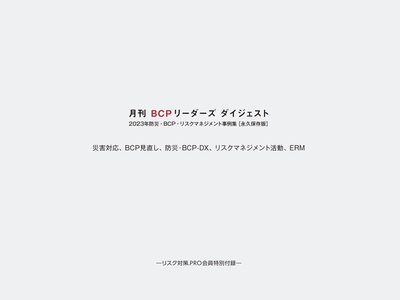
2023年防災・BCP・リスクマネジメント事例集【永久保存版】
リスク対策.comは、PDF媒体「月刊BCPリーダーズ」2023年1月号~12月号に掲載した企業事例記事を抜粋し、テーマ別にまとめました。合計16社の取り組みを読むことができます。さまざまな業種・規模の企業事例は、防災・BCP、リスクマネジメントの実践イメージをつかむうえで有効。自社の学びや振り返り、改善にお役立てください。
2024/04/22
-

-

リスク対策.com編集長が斬る!【2024年4月16日配信アーカイブ】
【4月16日配信で取り上げた話題】今週の注目ニュースざっとタイトル振り返り/特集:熊本地震におけるBCP
2024/04/16
-
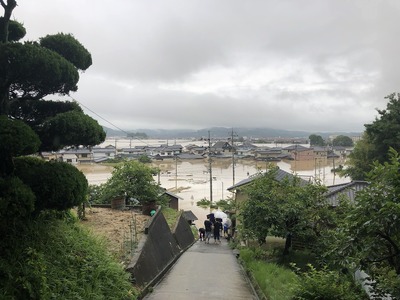
調達先の分散化で製造停止を回避
2018年の西日本豪雨で甚大な被害を受けた岡山県倉敷市真備町。オフィス家具を製造するホリグチは真備町内でも高台に立地するため、工場と事務所は無事だった。しかし通信と物流がストップ。事業を続けるため工夫を重ねた。その後、被災経験から保険を見直し、調達先も分散化。おかげで2023年5月には調達先で事故が起き仕入れがストップするも、代替先からの仕入れで解決した。
2024/04/16
-
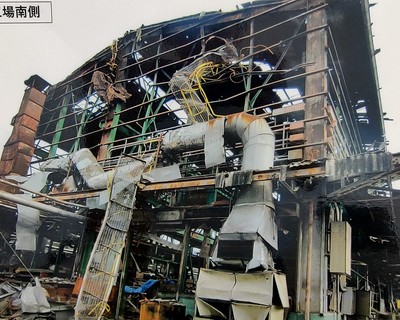
工場が吹き飛ぶ爆発被害からの再起動
2018年の西日本豪雨で隣接するアルミ工場が爆発し、施設の一部が吹き飛ぶなど壊滅的な被害を受けた川上鉄工所。新たな設備の調達に苦労するも、8カ月後に工場の再稼働を果たす。その後、BCPの策定に取り組んだ。事業継続で最大の障害は金属の加温設備。浸水したら工場はストップする。同社は対策に動き出している。
2024/04/15
-
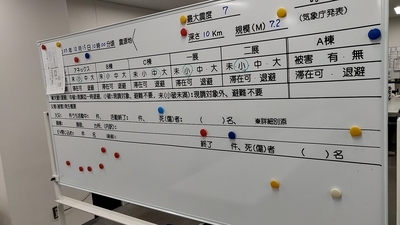
動きやすい対策本部のディテールを随所に
1971年にから、、50年以上にわたり首都圏の流通を支えてきた東京流通センター。物流の要としての機能だけではなく、オフィスビルやイベントホールも備える。2017年、2023年には免震装置を導入した最新の物流ビルを竣工。同社は防災対策だけではなく、BCMにも力を入れている。
2024/04/12


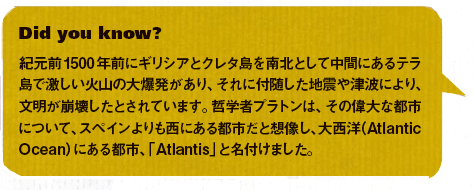
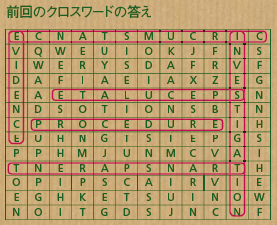







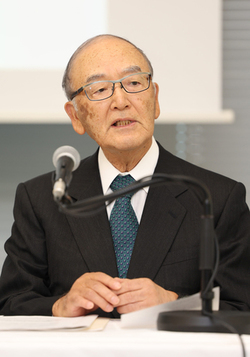

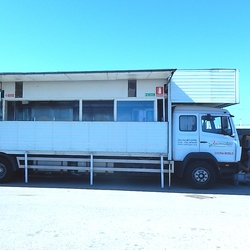


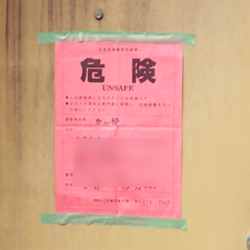


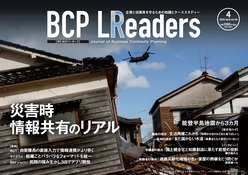


![2022年下半期リスクマネジメント・BCP事例集[永久保存版]](https://risk.ismcdn.jp/mwimgs/8/2/160wm/img_8265ba4dd7d348cb1445778f13da5c6a149038.png)






![危機管理2022[特別版]](https://risk.ismcdn.jp/mwimgs/f/6/160wm/img_f648c41c9ab3efa47e42de691aa7a2dc215249.png)
※スパム投稿防止のためコメントは編集部の承認制となっておりますが、いただいたコメントは原則、すべて掲載いたします。
※個人情報は入力しないようご注意ください。
» パスワードをお忘れの方